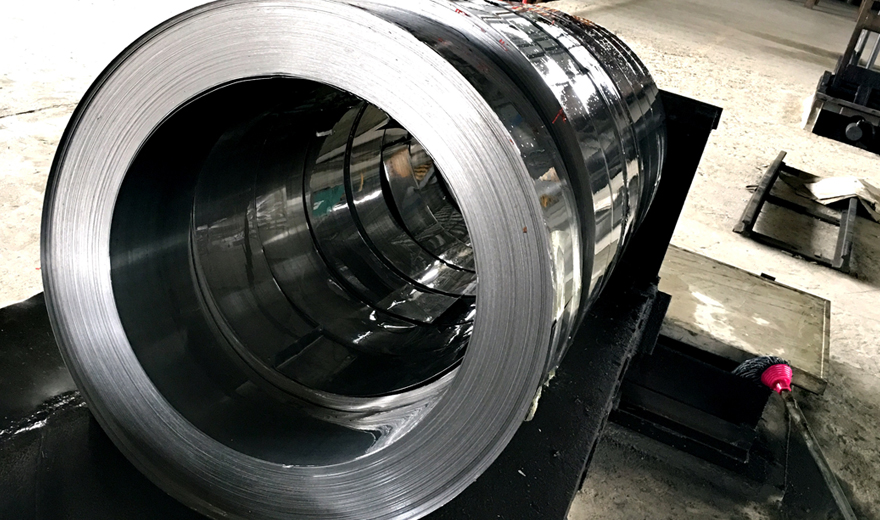Product Details
100Cr6 refers to a high carbon chromium bearing steel with less alloy content. After quenching and low temperature tempering, it has high hardness, uniform structure, good wear resistance and high contact fatigue performance.
100Cr6 Applications include ball screws for machine tools, nozzles for turbojet nozzles, plungers, valves, bushings, etc.
The cold working of the steel is medium in plasticity, the cutting performance is general, the welding performance is poor, the sensitivity to white spots is large, and the temper brittleness is obtained.
100Cr6 is one of the most commonly used high carbon chromium bearing steels with high hardenability and high and uniform hardness after heat treatment. The wear resistance is better than GCr9, the contact fatigue strength is high, the dimensional stability and corrosion resistance are good, the cold deformation plasticity is medium, the machinability is general, the weldability is poor, the formation is sensitive to white spots, and there is a first type of temper brittleness. In the manufacture of ball bearings, it is used to roll H-class to C-class bearing sleeves with a wall thickness of 12 mm and an outer diameter of <250 mm, steel balls with a diameter of 25.4-50.8 mm, and rollers with a diameter of <22 mm, which can also be used as a bearing. Heavy load. High wear resistance is required. High elastic limit. Other mechanical parts with high contact fatigue strength and various precision measuring tools such as cold die.
Executive standard
Japan JIS G4805: 1991
American ASTM A295:1998
Unified digital code: B00150
100Cr6 Supply hardness (HRC): 25.8
Tensile strength (MPa): 861.3
Yield strength (MPa): 518.42
Elongation after break (%): 27.95
Bending strength (MPa): 1821.61
100Cr6 Heat treatment
The heat treatment system is: steel bar annealing, wire annealing or 830-840 degree oil quenching.
Heat treatment process parameters:
1. Ordinary annealing: 790-810 degrees heating, after the furnace is cooled to 650 degrees, air cooling - HB170-207
2. Isothermal annealing: 790-810 degrees heating, 710-720 degrees isothermal, air cooling - HB207-229
3. Normal fire: 900-920 degrees heating, air cooling - HB270-390
4. High temperature tempering: 650-700 degrees heating, air cooling - HB229-285
5. Quenching: 860 degrees heating, oil quenching - HRC62-66
6. Low temperature tempering: 150-170 degrees tempering, air cooling - HRC61-66
7. Carbonitriding: 820-830 degrees osmosis 1.5-3 hours, oil quenching, -60 degrees to -70 degrees cryogenic treatment +150 degrees to +160 tempering, air cooling - HRC ≈ 67
Production method
The quality of bearing steel smelting is very high, and the content and distribution of sulfur, phosphorus and non-metallic inclusions need to be strictly controlled, because the content and distribution of non-metallic inclusions have a great influence on the service life of bearing steel. The higher the amount of inclusions, the shorter the life. In order to improve the quality of smelting, new technologies such as vacuum smelting and vacuum consumable refining can be used to improve the quality of bearing steel.
100Cr6 refers to a high carbon chromium bearing steel with less alloy content. After quenching and low temperature tempering, it has high hardness, uniform structure, good wear resistance and high contact fatigue performance.
100Cr6 Applications include ball screws for machine tools, nozzles for turbojet nozzles, plungers, valves, bushings, etc.
The cold working of the steel is medium in plasticity, the cutting performance is general, the welding performance is poor, the sensitivity to white spots is large, and the temper brittleness is obtained.
100Cr6 is one of the most commonly used high carbon chromium bearing steels with high hardenability and high and uniform hardness after heat treatment. The wear resistance is better than GCr9, the contact fatigue strength is high, the dimensional stability and corrosion resistance are good, the cold deformation plasticity is medium, the machinability is general, the weldability is poor, the formation is sensitive to white spots, and there is a first type of temper brittleness. In the manufacture of ball bearings, it is used to roll H-class to C-class bearing sleeves with a wall thickness of 12 mm and an outer diameter of <250 mm, steel balls with a diameter of 25.4-50.8 mm, and rollers with a diameter of <22 mm, which can also be used as a bearing. Heavy load. High wear resistance is required. High elastic limit. Other mechanical parts with high contact fatigue strength and various precision measuring tools such as cold die.
Executive standard
Japan JIS G4805: 1991
American ASTM A295:1998
Unified digital code: B00150
100Cr6 Supply hardness (HRC): 25.8
Tensile strength (MPa): 861.3
Yield strength (MPa): 518.42
Elongation after break (%): 27.95
Bending strength (MPa): 1821.61
100Cr6 Heat treatment
The heat treatment system is: steel bar annealing, wire annealing or 830-840 degree oil quenching.
Heat treatment process parameters:
1. Ordinary annealing: 790-810 degrees heating, after the furnace is cooled to 650 degrees, air cooling - HB170-207
2. Isothermal annealing: 790-810 degrees heating, 710-720 degrees isothermal, air cooling - HB207-229
3. Normal fire: 900-920 degrees heating, air cooling - HB270-390
4. High temperature tempering: 650-700 degrees heating, air cooling - HB229-285
5. Quenching: 860 degrees heating, oil quenching - HRC62-66
6. Low temperature tempering: 150-170 degrees tempering, air cooling - HRC61-66
7. Carbonitriding: 820-830 degrees osmosis 1.5-3 hours, oil quenching, -60 degrees to -70 degrees cryogenic treatment +150 degrees to +160 tempering, air cooling - HRC ≈ 67
Production method
The quality of bearing steel smelting is very high, and the content and distribution of sulfur, phosphorus and non-metallic inclusions need to be strictly controlled, because the content and distribution of non-metallic inclusions have a great influence on the service life of bearing steel. The higher the amount of inclusions, the shorter the life. In order to improve the quality of smelting, new technologies such as vacuum smelting and vacuum consumable refining can be used to improve the quality of bearing steel.
